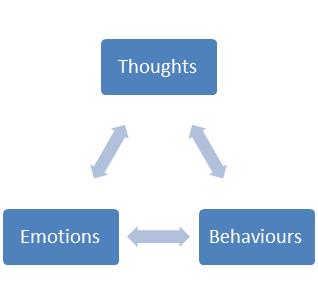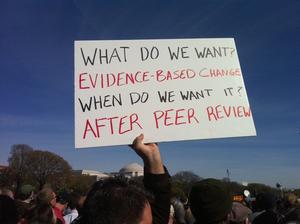CBT and Counselling
There are a number of differences between CBT and counselling. CBT tends to be focussed and targeted on solving the specific problems you bring, especially anxiety, depression and anger, and operates within a specific time-scale. We want to avoid the thinking that says that because you are "in therapy" that is sufficient and no further attempts to change are required, and to prevent the hour becoming a habit or a comfort blanket.
 CBT
differs from counselling because it focuses on how you are thinking and behaving
now rather than fantasizing about how events in the distant past might
have caused your current problems.
CBT
differs from counselling because it focuses on how you are thinking and behaving
now rather than fantasizing about how events in the distant past might
have caused your current problems.
CBT says that way that we think and behave and feel are all tied up with each other, and that each affects the other. Other than by drugs or alcohol, we can't directly affect our emotions, but by changing the way we think and behave, we can change the way we feel.
The things you would immediately notice as being different are that we work with an agenda and CBT sets self-help assignments, better known as homework.
Agenda
We work together to set an agenda at the start of each session so that we know where we're going and what we're working with. We remain focused on the task in hand and don't get drawn off into backwaters which might be easier than the real work. Of course, if something comes up that absolutely needs to be addressed, then we change the plan.
Homework
The idea of homework sounds a bit scary, but there are lots of benefits:
- you get to use some of the 167 hours in the week that you're not with your therapist – if you have an hour with the therapist and two hours on homework you're getting three times as much bang for your buck (you are making an investment of money and time and emotions in coming to therapy, and homework improves your return on that investment).
- you get to experiment whether changing a behaviour or a way of thinking differently affects your mood or anxiety levels
- you get to practise the skills you have learned in the session.
- you get to develop both confidence and competence in tackling your problems, which makes it less likely you will learn to rely on your therapist and become dependent.
- you get to learn how to be your own therapist, to observe how you think and behave, and to make the changes necessary to avoid the negative emotional effects.
Early homework is typically just observing a behaviour and possibly counting it. For example, counting the number of times you call yourself "stupid" is a goody and quite informative (try it). You'll learn early on to be kinder to yourself.
Feedback
At the end of each session, we will check with each other that all was well in the session; if you think something wasn't right or that I said something that troubled you, then this is our chance to get it sorted out.
 Evidence-based
Evidence-based
CBT is evidence-based: a lot of research goes on to ensure that the treatment models are realistic, and we work mostly with how you are thinking and behaving now. Because of its evidence base, CBT is the treatment of choice in the NHS, and NICE mandate that for depression and anxiety disorders CBT needs to have been tried and failed or offered and refused before almost all other forms of talking therapy can be offered.